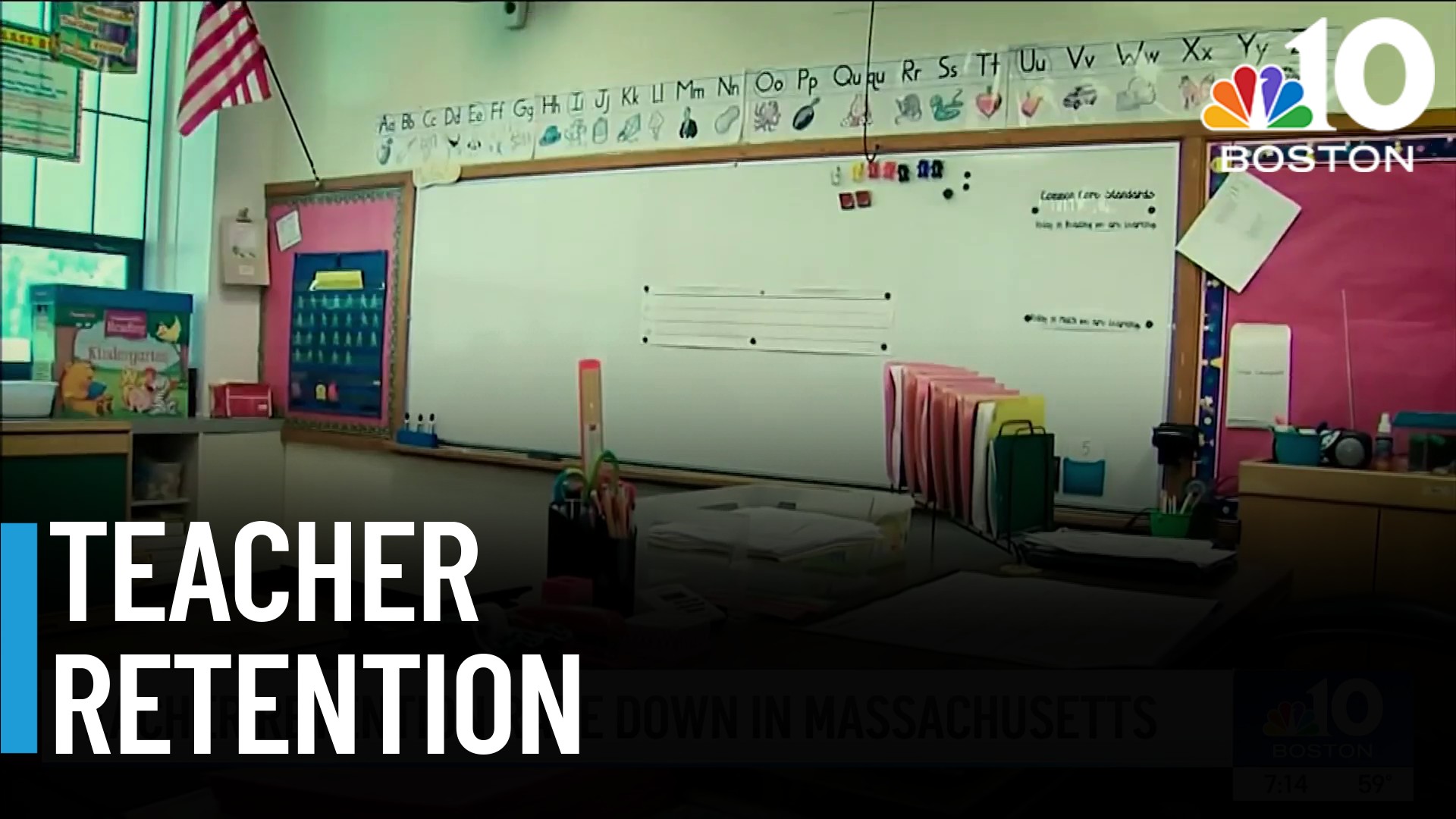The learning loss that came about as a result of the pandemic and its shift towards remote schooling that began more than four years ago is still showing up in standardized test results, state officials said as they released the latest batch of MCAS scores.
"The road back from the pandemic is not short," Education Secretary Patrick Tutwiler said during a press briefing on the 2023-2024 academic year test results.
WATCH ANYTIME FOR FREE
Stream NBC10 Boston news for free, 24/7, wherever you are. |
Across Massachusetts, students in every grade level scored lower on English language arts in 2024 than they did a year prior -- losing gains made last year in the subject and still far behind pre-pandemic scores.
The most dramatic losses were in fifth grade, where the number of students meeting or exceeding expectations fell six percentage points below last year's fifth graders on the reading and writing portion of the test. Other grades dipped between one and four percentage points from last year.
Get updates on what's happening in Boston to your inbox. Sign up for our News Headlines newsletter.
Department of Elementary and Secondary Education lead officer for data assessment and accountability Rob Curtin said that the department generally considers a one percentage point difference as not being significant. The number of students at least meeting expectations in ELA fell a single percentage point in eighth and 10th grade, but there were more serious declines in all other grades.
Those dips are more significant compared to pre-pandemic scores -- with grades three through seven still scoring at least 12 percentage points below 2019 scores on the ELA portion of the exams. Eighth graders are nine percentage points behind pre-COVID scores, and grade 10 is the closest to catching back up, trailing just 4 points behind what the 10th graders in 2019 scored on the test.
After a few years of students struggling to get back on track after coming back into the classroom, MCAS scores showed some uneven gains in English last year, and education officials struck a cautiously optimistic message.
In 2022, fourth and fifth graders actually increased their ELA scores by 2 and 3 percentage points, respectively -- though they still trailed behind their 2019 scores -- while 10th grade students remained stagnant.
"Our upper elementary grades are where a real pocket of success and momentum exists coming out of these results," Curtin said at the time.
The tone was different at this year's briefing, where officials stressed continued investment and work to recover from the pandemic.
"The third graders who participated in the MCAS last spring were in kindergarten during the throes of the pandemic and were not able to access consistent and personal instruction on some of the most critical and foundational skills, not to mention the apparent trauma and mental health needs, not only of the students, but also families and teachers alike," Tutwiler said during a briefing Monday on the results.
Education experts around the country have been declaring literacy -- and specifically literacy among young learners -- a crisis.
Gov. Maura Healey said in her state of the Commonwealth address this year that she would help deliver resources for schools to address the reading crisis, and promised $30 million a program she dubbed "Literacy Launch." She was able to secure $20 million for it in the first year of what she hopes will be a five-year program, to be distributed through grants to districts to purchase high quality instructional materials and fund professional development for teachers.
The administration also recently announced a $38 million federal literacy grant.
Though the English language arts scores declined last year, math and science scores were more mixed.
No grades in any of the subjects have recovered to 2019 levels, but some improved over last year, or stayed stagnant.
Third graders meeting or exceeding expectations in math gained three percentage points over last year. Most other grades were in the "stagnant" range compared to last year's math scores, except for 10th graders, who declined two percentage points.
In science, fifth graders meeting expectations improved overall, while eighth graders declined.
For 10th graders, the MCAS exam is especially important because they must pass the test or the MCAS-Alt, an alternative option, in order to graduate from high school. They may retake the test if needed to pass.
The Board of Education voted in 2022 to raise the score students would need to achieve on the standardized tests in order to pass, and therefore to graduate. These results, from the class of 2026 in their 10th grade, are the first from those raised standards.
DESE reports that 78% of the 10th grade students reached at least the minimum level in all three subjects (English, math and science) on their first attempt at the test and are not required to take it again.
Comparatively, 82% of 10th graders the year before passed the MCAS on their first try. That number has since risen to 91%, as students who did not originally pass have retaken the exam.
Students in the class of 2026 that did not pass will have four more chances to take the test as well as opportunities to appeal.



